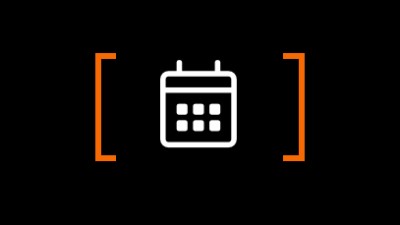Advancing the Plan | April 2023
- RIT /
- Diversity and Inclusion /
- Newsletters /
- April 2023 /
- Advancing the Plan

We are asking RIT leaders to share some of what they are doing to advance the RIT Action Plan for Race and Ethnicity. This month we have updates from Dean Doreen Edwards, Kate Gleason College of Engineering, Dean S. Manian Ramkumar, College of Engineering Technology and Vice President, Government and Community Relations, Vanessa J. Herman.
Kate Gleason College of Engineering
The Kate Gleason College of Engineering developed a Diversity and Inclusion Action Plan in 2019 with three broad themes: (1) strengthening the culture of inclusion, (2) recruiting and supporting an increasingly diverse student body, and (3) recruiting and supporting an increasingly diverse faculty and staff. The college has made good progress on most of the fourteen action items identified in the original plan.
Efforts to strengthen the culture of inclusion include forming a college-level diversity and inclusion committee, increasing diversity on the dean’s advisory council, and increasing the representation of diversity in our marketing and communication materials. The College launched its Diversity and Inclusion Committee in 2019 and charged it with advising the dean and taking on special projects that strengthen the culture of inclusion. The College has an ongoing effort to increase the diversity of the dean’s advisory council and has increased the percentage of women and AALANA members over the past five years, from 26 to 33% for women and from 6 to 15% for AALANA members. The College has significantly increased the representation of women and AALANA students in its print materials and hallway displays and continues to seek out ways to amplify the experiences of our women and AALANA students through social media posts.
The college has two programs devoted to supporting students who have been historically underrepresented in engineering. Both WE@RIT (Women in Engineering at RIT) and ECCO (Engineers of Color Creating Opportunity) host a series of regular events to support K-12 outreach, student recruiting, and community building for our current students. An important part of our outreach strategy is to expose K-12 students to diverse role models. This year, WE@RIT and ECCO are cohosting a K-12 open house during National Engineering Week. In the category of student recruiting, WE@RIT and ECCO routinely host events for accepted students, ranging from webinars to overnight events. Community building includes welcome and orientation events, study jams, pop-up lounges, professional development seminars, alumni-student receptions, student-faculty socials, and formal listening sessions that provide students an opportunity to bring their concerns to the dean and associate dean. The College is committed to supporting student professional groups that focus on increasing diversity in the engineering profession. This year, the student chapter of NSBE (National Society of Black Engineers) hosted the Upstate Fall Zone Conference Meeting at RIT.
The college is working to improve its support for recruiting and hiring a diverse faculty. We have been making several incremental improvements to our hiring processes and finding creative ways to support dual-career hires. The college participates in the Future Faculty Career Exploration program every year and recently collaborated with the Office of Faculty Diversity and Recruitment to host a career exploration webinar titled “Pathways to RIT – Engineering Edition.” Recognizing that mentoring can play a big role in establishing a sense of belonging, the College’s Diversity and Inclusion Committee developed a mentoring program under the leadership of Dr. Blanca Lapizco-Encinas. Since 2020, the program has placed 35 new faculty with mentors and will be sustained going forward. The College is making graduate progress towards its diversity goals with a 5.3% increase in the percentage of women faculty, a 3.5 % increase in ALANA faculty, and a 10.6% increase in ALANA staff over the past five years.
College of Engineering Technology
The College of Engineering Technology works every day to live its motto, “Every Student Counts.” By this we mean that faculty and staff work together to ensure the success of all students. This focus means that we have undertaken initiatives to close the graduation gap between our AALANA and non-AALANA students, engage in College-wide conversations about supporting student success in higher education, and have a full-time director of Women in Technology (WIT) and AALANA engagement.
To learn more about the challenges facing our students, beginning in 2017, we have held affinity group meetings wherein the Dean’s office leadership meets with our AALANA students to hear about their needs, challenges and successes. In response to feedback from students and employers, we developed a “Soft Skills Workshop.” This workshop, convened three hours each week for 10 weeks, delivered training on success in the workplace and interviewing skills, introduced students to alumni, and prepared them for co-op and fulltime employment. The success of this initial effort has helped CET establish an endowment to two sessions of this effort annually. Approximately 40% of CET’s AALANA student participate and benefit from this initiative.
The College community was invited to a private screening of the film “Unlikely,” an event attended by 75% of faculty and staff. This documentary highlights the many challenges faced by AALANA students as they enter—and work to persist in—college. The conversations that began as a result of this has continued to inform and inspire the work we do to serve students. Through targeted philanthropy in partnership with University Advancement, the College has secured funding to support study abroad scholarships for AALANA students who would otherwise not have the opportunity to engage in that experience.
Every January, a college-wide faculty and staff retreat provides the opportunity to come together to explore topics supporting student success. In “Students’ Mindset: How Teachers can Enhance the Learning Process” the work of effective teaching was framed through a lens that shifted from viewing students from a fixed perspective to a growth mindset. Collaboration with University colleagues informed multiple presentations. “Recognizing and Addressing Unconscious Bias in the Classroom—A Student Engagement Perspective,” presented by ADVANCE RIT and Linda Manning of CultureScapes Consulting and Training, challenged the College to grapple with the work of the insidious nature of unconscious bias in the classroom and its impact on student learning. “Insights on Student Success - A Student Support Perspective on Academic Success” presented by RIT Student Affairs, highlighted the range of supports available to students. In the wake of the COVID-19 pandemic, “Mental Health in the COVID Environment,” presented by RIT’s Counseling and Psychological Services addressed the very real mental health challenges that continue to impact students.
CET faculty have led research supporting outreach to diverse constituents, from veterans to economically disadvantaged, underrepresented students. For six years, James Lee, Associate Professor, has served as PI for the Veterans Upward Bound Program, a TRiO program designed to support low-income, first-generation veterans who have not completed post-secondary education. This program dovetails with and supports the strategic goal of expanding the Veteran workforce at RIT. Jeanne Christman, Associate Professor in ECET leads the NSF-funded project, “Graduating the Next Generation of Engineering Technology Professionals by Promoting Competence, Group Identity, and Autonomy.” Informed by self-determination theory, the project seeks to build a more diverse student population through the recruitment and retention of at least of 35 additional academically talented and economically disadvantaged students to Engineering Technology (ET), programs within the College of Engineering Technology (CET). In addition to providing scholarships, the project aims to increase diversity in ET by addressing factors in the engineering education environment that contribute to the underrepresentation of women, AALANA, first-generation (FG) and deaf/hard of hearing (D/HH) students in these programs.
Faculty and staff are engaged in service to the Rochester community. CET Assistant Professor Yewande Abraham has supported RIT's partnership with Rochester Prep through her work with City of Rochester high school students. CET's Assistant Dean for Research, Rebecca Sumner, PhD, has contributed to the work of the RIT/Rochester Prep partnership through her service on the Rochester Prep Board of Trustees, where she serves as Vice Chair of the Board and chairs the Academic Committee. Numerous CET staff has earned their cultural humility certificates; this important work has been encouraged and modeled by College leadership who themselves are engaged in the imperative need to integrate an equity mindset in the life of CET.
Division of Government and Community Relations
The Division of Government and Community Relations (GCR) is leading a statewide effort, working with the College of Engineering Technology, and a coalition of nine SUNY, CUNY and private, non-profit higher educational institutions across the state, to remove barriers for engineering technology graduates seeking professional licensure as an engineer. Earning a baccalaureate degree in ET is one of the dual pathways to becoming an engineer. Under current New York State law, applicants with engineering technology degrees are required to accrue two additional years of work experience over those with engineering degrees prior to being allowed to sit for the final licensure exam. This makes the process for licensure for these graduates longer, and sometimes impossible. The impact is that these graduates are at an economic disadvantage, and we believe the negative messaging that is conveyed by such a delay dissuades potential ET students from pursuing a career in engineering. This is particularly significant, as ET programs attract a higher number of underrepresented, economically disadvantaged, and first-generation college students than engineering programs.

Government and Community Relations staff fiercely advocate year round for increases in funding for financial aid programs, such as Pell Grants and the Tuition Assistance Program (TAP) and student support programs, such as the Higher Education Opportunity Program (HEOP) and CSTEP. All of these programs support underrepresented, low-income, and/or first-generation college students, by removing barriers and improving access to higher education. GCR was in Albany on February 14, 2023 with six RIT students who met with public officials to advocate for increased state investment in financial aid programs that support students.



